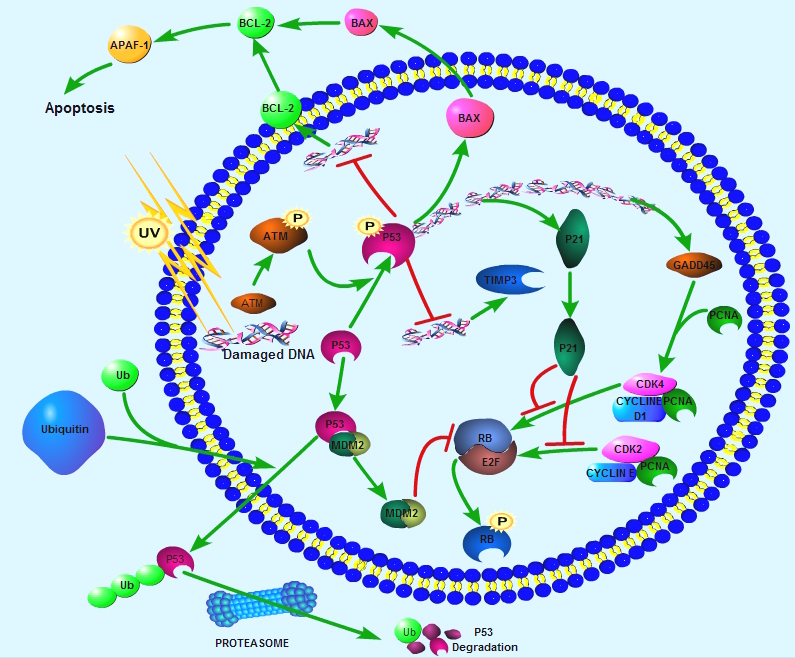
An oncogene is a gene that has the potential to cause cancer.[ In tumor cells, they are often mutated or expressed at high levels. Most normal cells undergo a programmed form of death (apoptosis). Activated oncogenes can cause those cells that ought to die to survive and proliferate instead. Most oncogenes require an additional step, such as mutations in another gene, or environmental factors, such as viral infection, to cause cancer. Since the 1970s, dozens of oncogenes have been identified in human cancer. Many cancer drugs target the proteins encoded by oncogenes.
A proto-oncogene is a normal gene that can become an oncogene due to mutations or increased expression. The resultant protein may be termed an oncoprotein. Proto-oncogenes code for proteins that help to regulate cell growth and differentiation. Proto-oncogenes are often involved in signal transduction and execution of mitogenic signals, usually through their protein products.
Suppressor gene, or anti-oncogene, is a gene that protects a cell from one step on the path to cancer. When this gene is mutated to cause a loss or reduction in its function, the cell can progress to cancer, usually in combination with other genetic changes. Tumor-suppressor genes either have a dampening or repressive effect on the regulation of the cell cycle or promote apoptosis, and sometimes do both.
Selected Reviews:
Croce CM (2008) Oncogenes and cancer. N Engl J Med. 358 (5): 502-11
Yokota J (2000) Tumor progression and metastasis. Carcinogenesis. 21 (3): 497-503
May P (1999) Twenty years of p53 research: structural and functional aspects of the p53 protein. Oncogene. 18(53):7621-36
Melamud A (2006) Retinoblastoma. Am Fam Physician 73 (6): 1039-44


